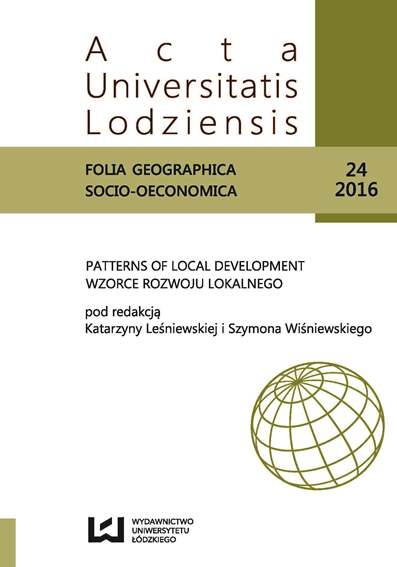Idee antropogeograficzne w pracach Marii Dobrowolskiej (1895-1984)
Anthropogeographical ideas in the works of Maria Dobrowolska (1895-1984)
Author(s): Marcin WójcikSubject(s): Anthropology, Agriculture, Marxist economics, Historical Geography, Environmental Geography, Politics and society, Methodology and research technology, Social development, 19th Century, Interwar Period (1920 - 1939), WW II and following years (1940 - 1949), Post-War period (1950 - 1989)
Published by: Wydawnictwo Uniwersytetu Łódzkiego
Keywords: Anthropogeography; concepts; methodology; Maria Dobrowolska;
Summary/Abstract: Polish anthropogeography, especially of the interwar period, still remains one of the key periods of reference in studies of geographical variation in research patterns and approaches. These issues are especially interesting in the case of geographers, whose scientific careers were shaped by various events that changed the history of the country and the nation. The main objective of this paper is to identify the guiding concepts of the author,that on one hand formed certain unchanging theoretical and methodological stances in the Second Republic, while on the other served as a modernisation of such assumptions based on political and ideological conditions. Many works referring to the idea of social evolution (e.g. the evolution of the agricultural landscape) had not been completed or published before 1939, while post-war assumptions and conclusions were heavily influenced by the interpretations of variable social and economic structures based on Marxist ideology. This created a methodologically eclectic interpretation of transformations. The work of Maria Dobrowolska discussing the transformation of cultural landscape and the variability in settlement over the ages also adhered to this. Anthropogeography, whose ambitious goal was to strive for a holistic explanation, corresponded well with the concepts of social evolution that used the analogies of organic wholes. Geography’s emphasis on the relationship between the humans and the natural environment reinforced in geographers formed in the inter-war period the feeling that organicism was an adequate method of inquiry into social development in the context of environmental variability and spatial mobility, which was definitely visible in M. Dobrowolska’s works on the evolution of cultural landscape and settlement network, especially following World War II.
Journal: Acta Universitatis Lodziensis. Folia Geographica Socio-Oeconomica
- Issue Year: 26/2016
- Issue No: 4
- Page Range: 5 - 15
- Page Count: 15
- Language: Polish

